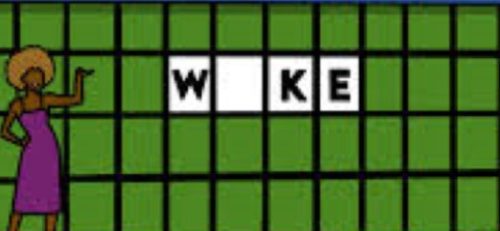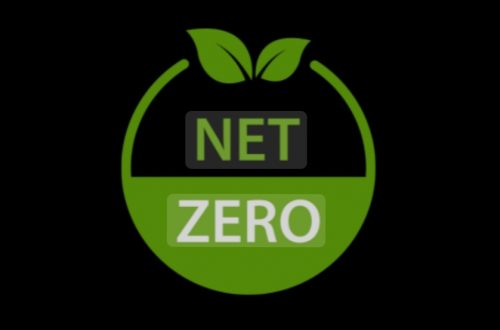This is a guest post by Alex Stein of falsedichotomies.com
A common trope of inter-generational discourse is for the older generation to dismiss the views of younger interlocutors as naïve or idealistic. This is a conversation stopper: to properly assess the claim we would need to fast forward twenty years to see if the accused still held the same opinions. Despite this obvious flaw, it’s still regularly deployed in discussion, and I wasn’t overly surprised to see IsraeliNurse and PetraMB use it against me following my ‘If I had been Binyamin Netanyahu’ piece. This time, however, the trope was combined with a new factor: my status as an immigrant Israeli of less than three years standing, as opposed to my antagonists, who have presumably been in the country for much longer, which of course means they know better.
Before continuing, I want to put one misconception aside. I do not claim to understand the Israeli ‘national pulse’ (itself a fiction) anymore than anyone else; I am also painfully aware that my views, which I would unsatisfactorily describe as Progressive Zionist, are held to be naïve by a majority of my countrymen. The narrative of an Israeli public who genuinely believed in the promise of the Oslo years, only to see it thrown back in their faces with the outbreak of the Second Intifada, is well known to me.
It is one thing to recognise this perception, however, and quite another to accept it uncritically, to equate the experience with the reality. The Israeli public is right to be angry about the wave of murderous violence unleashed with the Second Intifada, not to mention the constant barrage of rockets that came in response to the Disengagement. Our primary task, however, is to look closely at the behaviour of our own government, not in order to exculpate the other side for their crimes (this is not possible; murderous violence cannot be excused), but so that we can be sure that we have done everything we possibly can in order to ameliorate the difficult situation faced by our neighbours, a situation which is at least partly our responsibility, while at the same time ensuring that our security is paramount.
We have a good example of this from last week: The removal of a number of roadblocks and checkpoints in the West Bank (obstacles between Palestinian areas as opposed to obstacles separating Palestinian and Israeli population centres) was announced. Remember, we are often told that these checkpoints are absolutely vital for Israeli security. In the words of IsraeiNurse, “So I’m really sorry if it takes 4 hours to get from Schem [Nablus] to Ramallah, but that’s the price the Palestinians will have to pay until they renounce terror and we can be sure that no other schoolchild will have to suffer like my friend’s son did.” So what happened last week? Did the Palestinians renounce terror? Was the threat suddenly lessened? Or is the key word politics, namely the need to make a gesture to the Americans, pace ‘economic peace’, in order to try and stave off the unremitting White House pressure regarding the settlements. If the government was solely concerned about security, a hermetic separation barrier would have been built long ago between Israelis and Palestinians (note that this does not necessarily mean along the Green Line, although obviously far flung settlements would have had to have been evacuated), as opposed to the gobbling snake that currently weans its way through the West Bank. As for the checkpoints, like the old shtetl story of the goat, it seems we put up checkpoints as bargaining-chips, to be taken down in order to avoid making other ‘concessions’. In short, to justify them solely in terms of security is risible.
IsraeliNurse also suggests that I am not attuned enough to understand the full gamut of Israeli opinion. She is correct: I have only been here for three years (on July 10th; HPers in Zion are welcome to join me for a small celebration in the Vineyard), and am well aware that the ריח של ב”קום still trails behind me. She is right that I should walk humbly, yet I wonder if she is ready to take her own advice when it comes to Palestinian society. Both IsraeliNurse’s and PetraMB’s knowledge of Palestinians But seems to have been drawn largely from the op-ed columns of the Jerusalem Post, and is entirely lacking in any sense of empathy for the situation faced by the Palestinian people (accompanied by the repetitive refrain about recognition of Israel as a Jewish State), a significant degree of which is the result of decisions we have taken over the past twenty years, in which, with few exceptions, we have consistently exploited our legitimate quest for security in order to take land from other people.
PetraMB argues that it is difficult for a young immigrant to get the “sense of Israeli identity that is shared by veterans/sabres for whom the country’s story is part of what shaped their lives and families and friends.” This is both false and irrelevant. I witness and admire it on a daily basis. What more would she have me do? As for the debate surrounding the ‘national pulse’, according to Petra “it’s a contest you lose by a devastating margin.” While it was never my intention to engage in a ‘contest’ over this issue, there is an interesting point to be made. Perhaps Petra and IsraeliNurse are not as confident in their Israeliness as they would have us believe, despite all their years here. At the outset I acknowledged that a majority of Israelis would not agree with my views, as is reflected by the consistent poor display by left-wing candidates in the polls. But this does not mean that the majority is right. I am an Israeli which means that I have the same rights in this country as someone who was born here (Gert and the other anti-Zionist vultures circling overhead; yes, I’m aware of the irony – we can discuss this another time). If I am considered to be less Israeli because I do not buy into the national pulse as offered to us by Petra and IsraeliNurse, then so be it. Thankfully, though, that hasn’t been my experience. I interact on a daily basis with Israelis who are perfectly aware of my views yet do not seek to patronise me. In fact, for some, my views even come as a pleasant surprise.
IsraeliNurse closes by arguing that a successful absorption is about casting off my ‘Londini’ experiences, “which…may just as well be another planet” and becoming an Israeli, by which she seems to mean falling into line with a monolithic worldview by which we’ve-done-our-best-but-they-still-want-to-throw-us-in-the-sea. I take issue with this. Like other multicultural societies, Israel is successful because it has people from all over the world bringing something new to the table. In my case, I happen to bring with me a relentless commitment to liberal democracy and an unblinking opposition to racial discrimination (Gert et al – see above). This give-and-take is a strength of Israeli society, and I would take issue with anyone who claims otherwise. I am a proud and confident Israeli and I believe in this country and I will not accept anyone attempting to deprecate my views for any reason other than their content.
But perhaps they are right. Perhaps in twenty years I will think differently. Given the current reality, though, I am not so convinced that it will be in the direction they foresee. As Nas says, “Much success to you/even if you wish me the opposite/sooner or later we’ll all see who the prophet is.” At a certain point, we have to agree to disagree.


